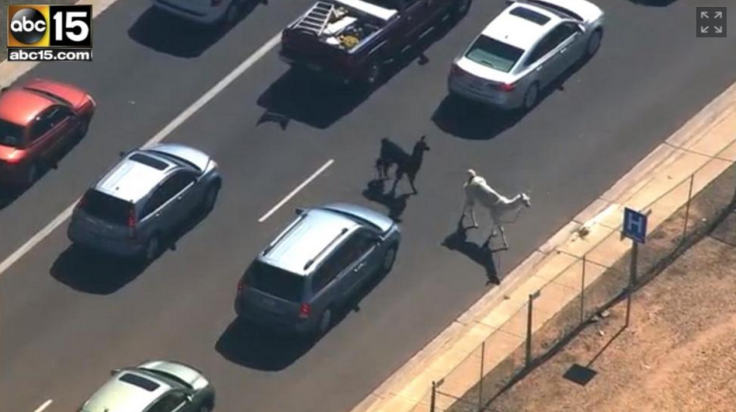The Dress, llamas and Net Neutrality: Is this the free internet we fought for?

On 26 February, I received an email with the simple subject line "Internet Victory". The email was from non-profit advocacy group Fight for the Future (FTTF), who were hailing the fact the Federal Communications Commission in the US had passed strong net neutrality rules to enshrine a free and open internet for all. Huzzah.
This is a good thing. The internet will not be split into a tiered system, one for the haves and another slower one for the have-nots. It will be a level playing field where broadband companies will not be able to offer fast lanes to those with means, while the rest are stuck in the slow lane unable to get ahead.
The FCC vote was the result of a sustained campaign online by activists such as the FTTF acting as the voice of the people to prevent the service providers from bending the internet to their demands.
I closed my laptop with a sense that for once the power of the people on the internet had done a good thing. But 12 hours later, all that good work was undone: #TheDress - that f**king dress - and a pair of llamas were to blame.
A "viral singularity"

As I flicked through Twitter on my way to work on 27 February, I tried to ignore tweets about #TheDress, hoping it was some blip on the world wide web that I would be able to ignore - but I was very wrong.
For the lucky few who do not know, the whole debacle arose from someone posting a picture of a dress on Tumblr that some thought was black and blue, and others thought was gold and white.
(This post from Yahoo's David Pogue is the best explanation I have read on what is going on.)
The picture went viral with Buzzfeed amplifying its online status and quickly reaped the benefits with its post being shared 16 million times in just five hours, and BuzzFeed saying a record 670,000 people were on the site at the same time at one point.
Neetzan Zimmerman, previously Gawker's unofficial viral editor, dubbed the huge interest about #TheDress as a "viral singularity". This, however, was the second such viral phenomenon of the day.
Is this llama black or white?
By the time I was making my way to work in London, there was only a trickle of tweets about llamas, another story that had clearly captured the imagination but of which I was entirely unaware.
Again for the uninitiated, one white llama and one black llama (this time there was no controversy about the colours) escaped from a show-and-tell presentation at a retirement community in Arizona before going on the run, all the while their movements tracked by cameras on a helicopter belonging to a local television station.
It was a perfect internet moment. Live coverage of a police chase that features cute and cuddly animals, which could be transformed into an endless meme online.
According to social software platform, Spredfast at its height, there were over 3,000 tweets being generated per minute about the llamas and parody accounts for the two furry fugitives were created within minutes.
Net neutrality, who cares?
According to social analytics service Topsy, tweets mentioning some of the related topics (#llamas, #teamllama, white llama, black llama) numbered well over 200,000 - though this was nothing compared to the almost 700,000 tweets related to #TheDress that have been published in the past 24 hours.
How many people tweeted about Net Neutrality, I hear you ask? The answer: 100,000.
I cannot tell if it is a sad indictment of the world we live in or just the fact that this is how modern media works. Buzzfeed amplified the Tumblr post but once people saw the insane levels of traffic the king of viral content was generating, everyone from Time to CNN got in on the action. Everyone wants a piece of the viral action now and what it results in is a somewhat artificial inflating of the interest in certain stories.
Are you actually interested in what colour the dress is and the science behind the freaky optical illusion, or is it just media hype perpetuating the story?
Even this article is in some way designed to cash in on the hype surrounding this viral content. The internet is essentially eating itself.
Frivolous but so what?
To me, #TheDress debacle seemed frivolous and inconsequential, at a time when wars rage around the world and countries such as Greece hang on the edge of collapse. I wanted to shout at people to stop talking about this (and I did on Twitter) as well as banging my head off my keyboard as the debate ranged in the office.
But that is to miss the point of the free and open internet the FCC enshrined in its ruling on 26 February. Yes, the internet is a powerful tool that should be used for good and to help educate and inspire people, but if people want to spend time online arguing over the colour of a dress or the fate of a pair of renegade llamas, then that is entirely their right.
© Copyright IBTimes 2025. All rights reserved.






















